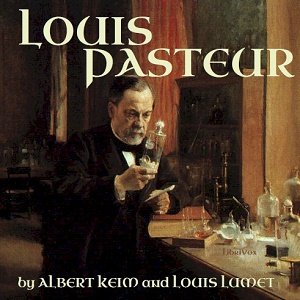Book Review: "Louis Pasteur" by Albert Keim

This is an excellent biography for those interested in the history of biology. It discusses the life of Louis Pasteur and his struggles that culminated in several major developments in the foundation of modern biology and microbiology.
It starts with some brief information about his parents, to his studies in boyhood, then progresses into his career. The major highlights I found in this book are: the origination of Pasteur's hypothesis of bacterial spores, his efforts to demonstrate it and in the process completely disprove spontaneous generation (the idea that life regularly generated from non-life, such as maggots appearing in a corpse, or microbes appearing in sealed containers), including a multi-year scientific war between him and his doubters, that culminated in Pasteur appearing before the Royal Society alongside his doubters so that the whole group of scientists can watch their experiments and decide who had the better method.
It described his creation of germ theory which led to him giving suggestions to doctors and surgeons for proper hygiene and sterilization of equipment that immediately started saving lives, to his efforts at combating various diseases afflicting French livestock that helped preserve those industries, to his creation of the process of preserving liquids by heating them in a sealed container (that we now call "Pasteurization" in his honor), to his creation of a successful treatment for hydrophobia (which we now call rabies).
If the only reason you read biographies is so that you can learn about the character traits, personalities and habits of successful people, in the hopes that you can apply the same wisdom to your own life, don't bother with this book. It gives virtually no detail other than "he was a great man, smart, dedicated to science and he worked very hard" (not an actual quote). When it talked about his character, it was all praise, none of the challenges or habits that you can learn from. A much better book for this purpose would be the Autobiography of Benjamin Franklin.
If you're interested in learning about science from the perspective of those who discovered those principles for the very first time, or if you like books about people solving puzzles, you will enjoy this book. In the former case, while this book is good, you would be still better served by reading either Marie Curie's Radioactive Substances, or Joseph Priestley's Experiments and Observations on Different Kinds of Air.
To me, this book was "Science adventures: biology edition!" and for me that's enough.